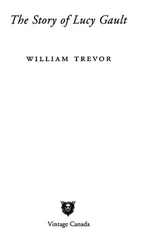Trevor, William - Children Of Dynmouth
Здесь есть возможность читать онлайн «Trevor, William - Children Of Dynmouth» весь текст электронной книги совершенно бесплатно (целиком полную версию без сокращений). В некоторых случаях можно слушать аудио, скачать через торрент в формате fb2 и присутствует краткое содержание. Год выпуска: 1976, Издательство: Penguin Publishing, Жанр: Старинная литература, на английском языке. Описание произведения, (предисловие) а так же отзывы посетителей доступны на портале библиотеки ЛибКат.
- Название:Children Of Dynmouth
- Автор:
- Издательство:Penguin Publishing
- Жанр:
- Год:1976
- ISBN:нет данных
- Рейтинг книги:4 / 5. Голосов: 1
-
Избранное:Добавить в избранное
- Отзывы:
-
Ваша оценка:
- 80
- 1
- 2
- 3
- 4
- 5
Children Of Dynmouth: краткое содержание, описание и аннотация
Предлагаем к чтению аннотацию, описание, краткое содержание или предисловие (зависит от того, что написал сам автор книги «Children Of Dynmouth»). Если вы не нашли необходимую информацию о книге — напишите в комментариях, мы постараемся отыскать её.
Children Of Dynmouth — читать онлайн бесплатно полную книгу (весь текст) целиком
Ниже представлен текст книги, разбитый по страницам. Система сохранения места последней прочитанной страницы, позволяет с удобством читать онлайн бесплатно книгу «Children Of Dynmouth», без необходимости каждый раз заново искать на чём Вы остановились. Поставьте закладку, и сможете в любой момент перейти на страницу, на которой закончили чтение.
Интервал:
Закладка:
‘Toasted tea-cake, madam?’ the stout waiter offered.
‘Yes, please.’
The conversation about schools and the wedding party was a way of filling in the time, or of avoiding what seemed to Kate to be a more important conversation: was Stephen as happy as she was about their parents’ marriage? It was more of an upheaval for Stephen, having to move with his father to Sea House, where she and her mother had always lived. As they ate their toasted tea-cakes it occurred to her that Stephen might never refer to the subject at all, that this single conversation might be difficult between them. His mother was dead: did he resent someone else in her place? Did he resent all of a sudden having a sister? Being friends was one thing; all this was rather different.
They added raspberry jam to brown bread and butter. They watched a station going by, in a heavy, dismal downpour. Leaning on a brush, a damp porter looked back at them from the platform. Machine Engraving, it said on a poster, Archer Signs Ltd.
‘D’you think you’ll like living in Sea House, Stephen?’
He was still looking out of the window. ‘I don’t know,’ he said, not turning his head.
‘It’ll be all right.’
‘Yes.’
Already his father had sold Primrose Cottage; already their furniture had been moved to Sea House. Going to live there was apparently the best arrangement, or so his father had explained when telling him about the forthcoming marriage. Kate’s mother had actually been born there and so had Kate. The house was much bigger than Primrose Cottage and more suitable for the four of them in other ways as well. But Primrose Cottage, a mile from Dynmouth, on the Badstoneleigh road, was what Stephen still thought of as his home, with its banks of primroses, and buddleia full of butterflies in the small back garden, and the memory of his mother.
‘You’ll like it, Stephen. The Blakeys are nice.’
‘I know the Blakeys are nice.’ He smiled again, his eyes remaining sombre even though he didn’t want them to. ‘I’m sure it’ll be all right.’
The train rushed through the dismal afternoon, the silence between them had an edge to it. Stephen was often silent, but she knew he was thinking now of their parents’ marriage, and wondering about it. Two facts had made it possible: the divorce of her own parents and the death of his mother. The divorce had happened before she or Stephen could remember. Now and again her father came back to Dynmouth, or to see her at St Cecilia’s, but the visits made her unhappy because his presence caused her to sense the trouble and the pain there’d been. She couldn’t help not liking him, sensing as well that it was he who had been cruel, that he had deserted her mother for the wife he was now married to.
The waiter brought sandwiches and more hot water and then a tray full of cellophane-wrapped pieces of fruitcake and slices of Swiss roll. Kate took a slice of Swiss roll and the waiter told her to have another because the slices were small. Stephen took a piece of fruitcake. He undid the cellophane, carefully remembering the past, wanting to because it was relevant on this particular day: the details were preserved, behind some screen in his mind, always available. A time would never come when he’d forget it had been autumn, or forget the slight foreboding he’d felt at being summoned. The undermatron, Miss Tomm, had come into the dormitory and asked him to come with her to the study. The half-past-eight bell had just gone. Lights-out was in a quarter of an hour. ‘Eee, what’s Fleming done?’ Cartwright shouted out, standing by his bed in a checked dressing-gown, with a towel in his hand. He flicked the towel at Stephen, and Miss Tomm sharply told him to leave off.
His father was in the study, sitting in the chair in front of the Craw’s desk, the chair the Craw asked you to sit in when he was going to give you a row. His father hadn’t taken off his overcoat or his scarf.
‘Ah,’ the Craw said when Stephen entered.
The Craw found another chair and drew it up to the desk. He told Stephen to sit on it, in a voice that wasn’t as scratchy as usually it was. His eyes kept darting about. Fingers like sticks were restless on the desk in front of him.
‘Shall I?’ he suggested, raising grey eyebrows at Stephen’s father. ‘Or would …?’
‘I’ll do it, please.’
His father was different also. His cheeks were pale, quite noticeably so in the hard glare of the room’s electric light. Stephen thought he was ill. In the confusion of being so abruptly called out of the dormitory and then finding his father in the study, he could think of no better reason for his father’s presence than that he should have come to Ravenswood Court to tell him that he was ill.
‘Mummy,’ his father said in a peculiar, stuttering kind of voice, quite unlike his usual one. ‘Mummy, Stephen. Mummy …’
He did not go on. He wasn’t looking at Stephen. He was looking down at his open overcoat, at its buttons and the brown and green of its tweed.
‘Is Mummy ill?’
His father controlled himself. When he spoke it was no longer with a stutter. He said: ‘Not ill, Stephen.’
Blood spread into Stephen’s neck and face. He could feel its warmth, and then he felt it draining away.
‘Mummy has died, Stephen.’
The clock on the mantelpiece ticked busily. The Craw moved a paper on his desk. There was a knock on the door, but the Craw didn’t answer it.
‘Died?’
‘I’m afraid so, Stephen.’
‘You must be brave, old chap,’ the Craw said, his voice beginning to make its scratchy sound again.
The knock on the door was repeated. ‘Not now,’ the Craw shouted.
‘It would be better if you didn’t come home. It would be better if you could stay at school, Stephen. I thought at first you should come home.’
‘Best to stay at school, Stephen,’ the Craw said.
‘Died?’ Stephen said again. ‘Died?’
His lips began to quiver. He felt the bones of his shoulders shaking uncontrollably. He could hear his own breathing, a noisy panting he couldn’t control either.
‘Died?’ he whispered.
His father was standing beside him, holding him.
‘It’s all right, Stephen,’ he said, but it wasn’t all right and the other two in the room knew it wasn’t either. It was unbelievable, it was something that could not be true. He felt the tears on his face, a wetness that came warmly and then was chill. He struggled, as he often did in nightmares, trying to reach a surface, struggling to wake up from horror.
‘You must be brave, old chap,’ the Craw said again.
She had a way of comforting, holding you differently from the way his father was holding him now. There was the softness of her hands, and her black hair, and a faint scent of perfume. ‘Eau de Cologne,’ she said. She smiled at him, her eyes lost behind sun-glasses.
The Craw was no longer in the room. His father had a handkerchief in his hand. Stephen wept again, closing his eyes. He felt the handkerchief on his face, wiping away the tears. His father was murmuring but he couldn’t hear what he was saying.
He couldn’t prevent himself from seeing her. She stood by the edge of the sea, a rust-coloured corduroy coat pulled tightly around her; he could see her breath on the icy air. He watched her making drop-scones in the kitchen of Primrose Cottage.
Mrs Craw came in with a cup of chocolate, with the Craw behind her, carrying a tray of tea things. They didn’t say anything. The Craw put the tray on the desk, and Mrs Craw poured a cup of tea for his father. They both went away again.
‘Try and drink your chocolate,’ his father said.
A skin had already formed on the surface. ‘Disgusting!’ he used to cry when she brought him chocolate in bed, and she’d laugh because it was a joke, because he was only pretending to be cross.
Читать дальшеИнтервал:
Закладка:
Похожие книги на «Children Of Dynmouth»
Представляем Вашему вниманию похожие книги на «Children Of Dynmouth» списком для выбора. Мы отобрали схожую по названию и смыслу литературу в надежде предоставить читателям больше вариантов отыскать новые, интересные, ещё непрочитанные произведения.
Обсуждение, отзывы о книге «Children Of Dynmouth» и просто собственные мнения читателей. Оставьте ваши комментарии, напишите, что Вы думаете о произведении, его смысле или главных героях. Укажите что конкретно понравилось, а что нет, и почему Вы так считаете.










